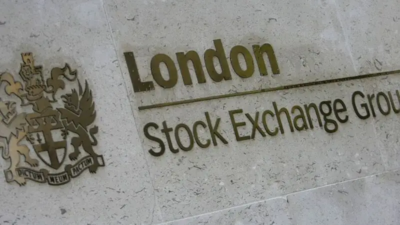Mark Zuckerberg had a surprisingly good 2023
A version of this story first appeared in CNN Business’ Before the Bell newsletter. Not a subscriber? You can sign up right here. You can listen to an audio version of the newsletter by clicking the same link.
It’s been a “year of efficiency” for Meta (formerly known as Facebook), and a very good one at that.
After a devastating 2022 that saw the California-based company’s market value tumble by about $600 billion and its stock fall 65%, Meta has made a major comeback. Its shares are up more than 170% this year and Wall Street is feeling positive that the best is yet to come.
Even CEO Mark Zuckerberg, who was criticized in 2021 and 2022 for moving the company away from its core business of Facebook, Instagram and WhatsApp — and full-speed into the so-called metaverse — is benefiting from the reversal of fortune. As the stock boomed, Zuck, his trust, charities and political entities sold shares of Meta this November for the first time in two years for a cash-out worth about $185 million, according to regulatory filings.
So what changed?
The year of efficiency: Meta has cut corners this year, opting for austerity instead of spending on the fantasy of a future in the metaverse — and Wall Street has shown its approval by rewarding the company massively.
The company has laid off more than 20,000 employees over four rounds of layoffs beginning at the end of last year.
Meta has said the layoffs were all about efficiency, as the company attempts to recover from repeated revenue declines, heightened competition, concerns about user growth and big losses in its Reality Labs division. Zuckerberg also took responsibility for over-hiring earlier in the pandemic, when there was strong demand for the company’s products and online advertising, which dropped off somewhat once the world reopened.
The company has also worked to stabilize its cash flow this year (that’s the cash a company has left after covering its operating costs and Investments, a good indicator of its financial health) by deprioritizing a significant number of its AI projects. That flow fell to a recent low of $173 million last fall. But as of last quarter, it’s back up to $13.64 billion, a pretty impressive change.
It’s also good news for shareholders. Meta spent about $3.7 billion in share repurchases in the third quarter alone.
A friendly economy: At the same time Meta was tightening its belt, it was also bolstered by a bounce-back in the advertising market, as companies realized their dire predictions about the American economy were unlikely to come to fruition. The Federal Reserve stopped hiking rates, and consumers kept right on spending.
Ad revenue came back in a big way for the company after significant declines in 2022. Meta’s ad views increased in the third quarter by 31% from a year earlier. The company did see its average price per ad decline by 6%, but that was the slowest fall in nearly two years.
The company has also succeeded in adding users, monetizing its reels feature on Instagram and successfully launched Threads, meant to directly compete with Elon Musk’s X. Threads will launch in the EU next week.
Looking forward: The question is whether Meta can continue to shine on Wall Street even after its program of austerity ends.
Zuckerberg announced during third quarter earnings this fall that it will spend more next year than Wall Street analysts had previously predicted, by hiring more and refocusing on expanding into AI. The company also warned that the ongoing conflict in Israel and Gaza could hit fourth-quarter sales.
Momentum also appears to be fading: the stock has dropped about 1.2% in the last month, when the rest of the market has been steadily rising.
But not all analysts think that this is the end of Meta’s bull run. Bank of America still gives the stock a “buy” rating.
“AI driven innovation at Meta will lead to new user experiences and recurring revenue models,” wrote Jason Post, a BofA analyst, in a recent note. “We think Meta’s AI assets are underappreciated in the stock price.”
While Zuckerberg’s comments about more hiring in 2024 may have made some nervous about increased expenses, the message is clear, wrote KeyBanc analyst Justin Patterson in a note: Meta still plans to grow but at a much more manageable rate.
Both analysts have increased their price targets for Meta stock in the year ahead.
Federal jury says Google’s app store violated antitrust law
In a momentous decision that could chip away at Google’s firm control of its Android app store, a federal jury said Monday evening that Google’s app marketplace is an illegal monopoly, reports my colleague Brian Fung.
The verdict in a years-long battle between Epic Games — maker of the hit video game “Fortnite” — and the technology giant marks a significant victory for critics of Google’s app store terms and practices. The jury found Google’s app store practices violate US antitrust law and the search giant has illegally operated a monopoly in the manner in which it distributes Android apps and charges for them.
Epic and Google had sparred for weeks in a closely watched federal trial over everything from the fees Google charges for in-app purchases to Google’s contract terms that restrict competing app stores from Android devices.
The jury decision could represent a crack in the armor of app store operators, who for years have successfully defended their platforms from monopoly allegations by consumers, app makers and other critics of large technology companies.
“Victory over Google!” said Epic Games CEO Tim Sweeney in a post on X. “After 4 weeks of detailed court testimony, the California jury found against the Google Play monopoly on all counts.”
In a statement, Google said it would challenge the landmark verdict that could lead to sweeping changes to the company’s app store business.
“Android and Google Play provide more choice and openness than any other major mobile platform,” said Wilson White, vice president of government affairs and public policy at Google. “The trial made clear that we compete fiercely with Apple and its App Store, as well as app stores on Android devices and gaming consoles. We will continue to defend the Android business model and remain deeply committed to our users, partners, and the broader Android ecosystem.”
Macy’s shares soar on report of buyout offer
Shares of Macy’s soared more than 17% early Monday on a Wall Street Journal report that the iconic 165-year old retailer closely associated with the holiday season might itself be bought, report my colleagues Chris Isidore and Nathaniel Meyersohn.
The report said the offer, which would pay shareholders a 32% premium above the stock’s closing price Friday, comes from Arkhouse Management, a real-estate focused investing firm, and Brigade Capital Management, a global asset manager, noting that that the bidders had discussed the proposal with Macy’s.
It isn’t clear how the retailer views the proposal. Spokespeople for Macy’s and Arkhouse had no comment on the Journal report. Brigade did not immediately respond to a request for comment.
Macy’s has 722 store locations in 43 states, Washington, DC; Puerto Rico and Guam. It operates about 500 Macy’s branded stores, as well as 55 of the more upscale Bloomingdale’s branded stores and 160 locations of the beauty and skin-care chain Bluemercury, which it acquired in 2015.
Maybe You Like
London Stock Exchange urged to do more to hold onto retail traders
The UK stock market needs to improve investor communication and engagement in order to retain its individual traders, according to a report from online trade and investor provider CMC Markets. ADVERTISEMENTUK retail investors are increasingly...
Hargreaves Lansdown rejects private equity takeover bid
The UK investment platform says the offer from a group including the Abu Dhabi Investment Authority undervalues the firm. ADVERTISEMENTHargreaves Lansdown has rebuffed a takeover proposal worth £4.67 billion (€5.48 billion) made...
Ferrovial set to offload UK regional airports amid Heathrow deal uncertainty
Ferrovial is planning to sell its stake in three UK regional airports amid difficulties in finalising its £2.4bn sale of a 25% stake in Heathrow. ADVERTISEMENTSpanish infrastructure company Ferrovial is reportedly putting up for sale...



























